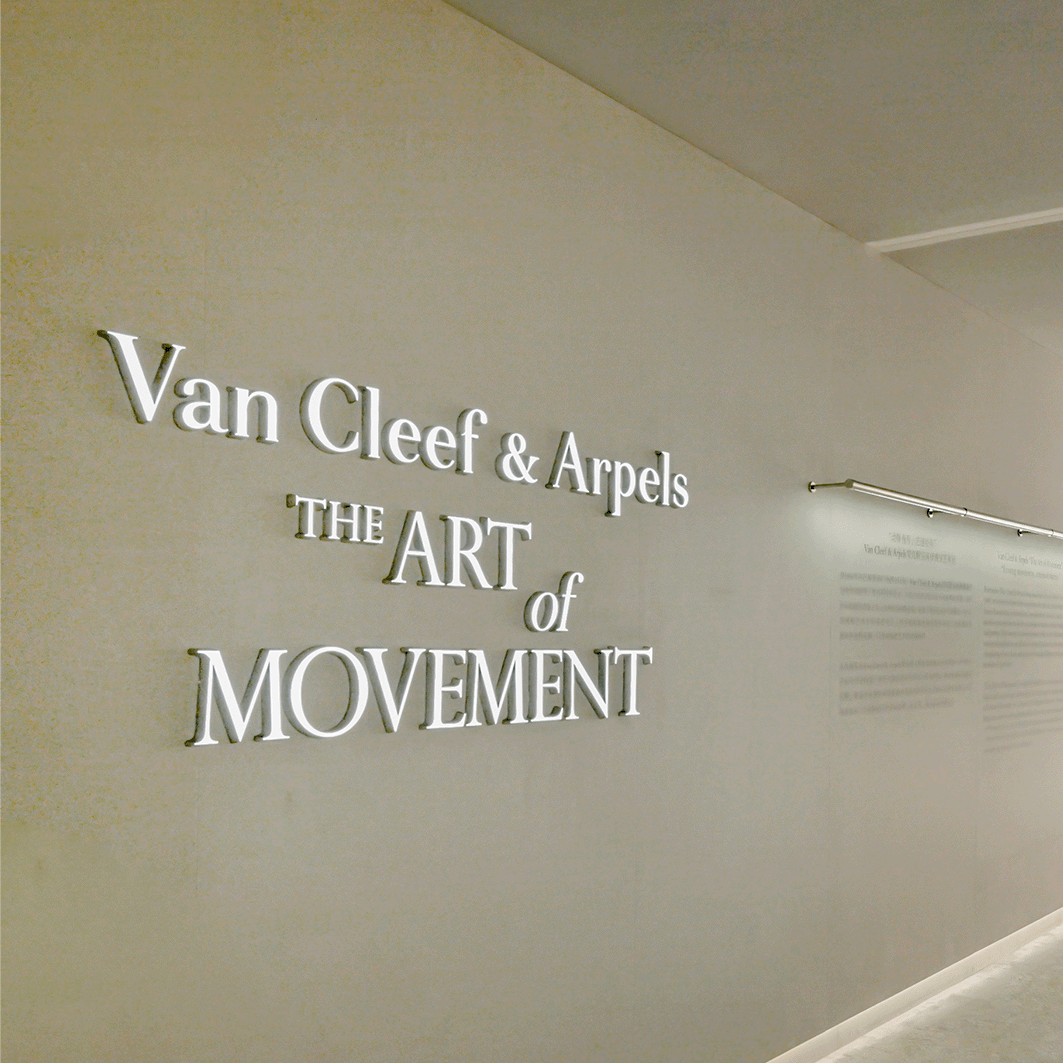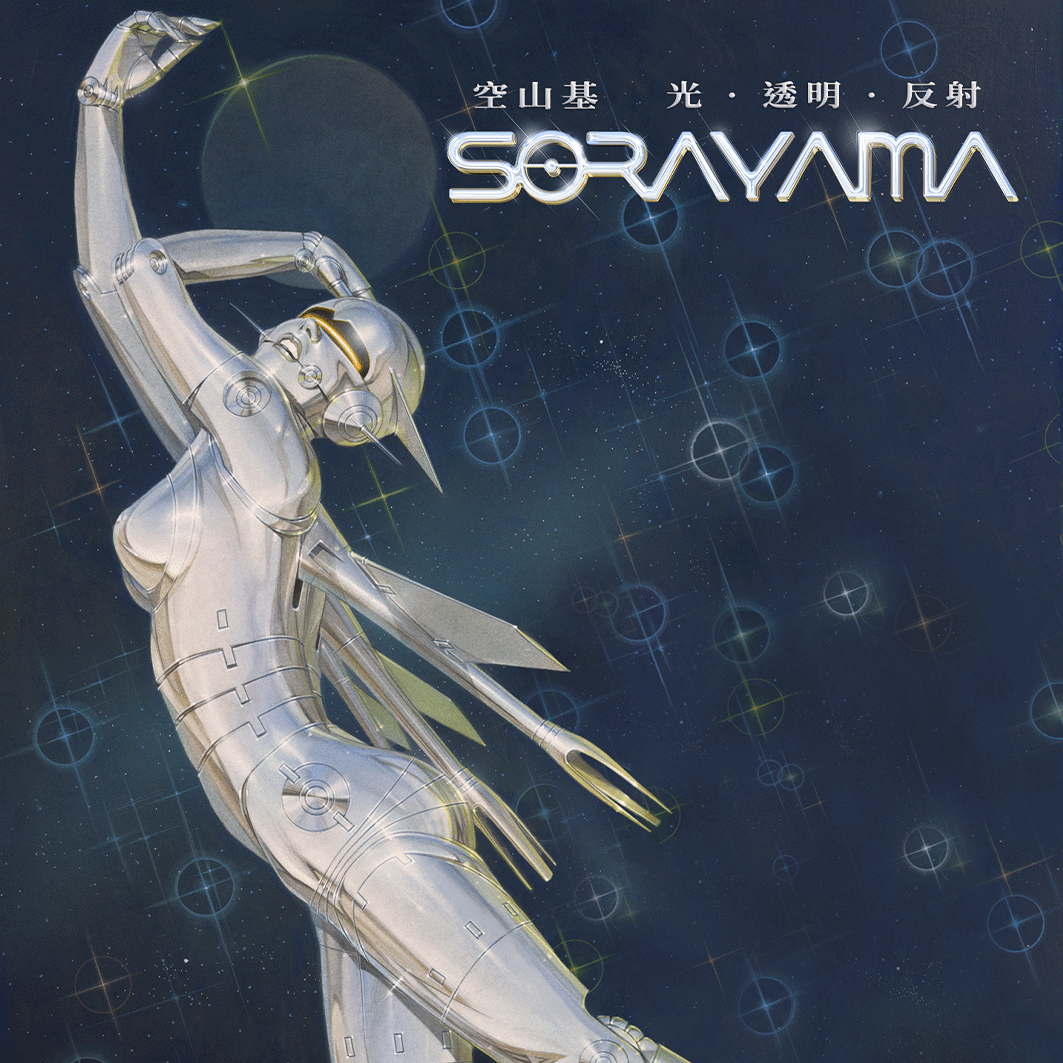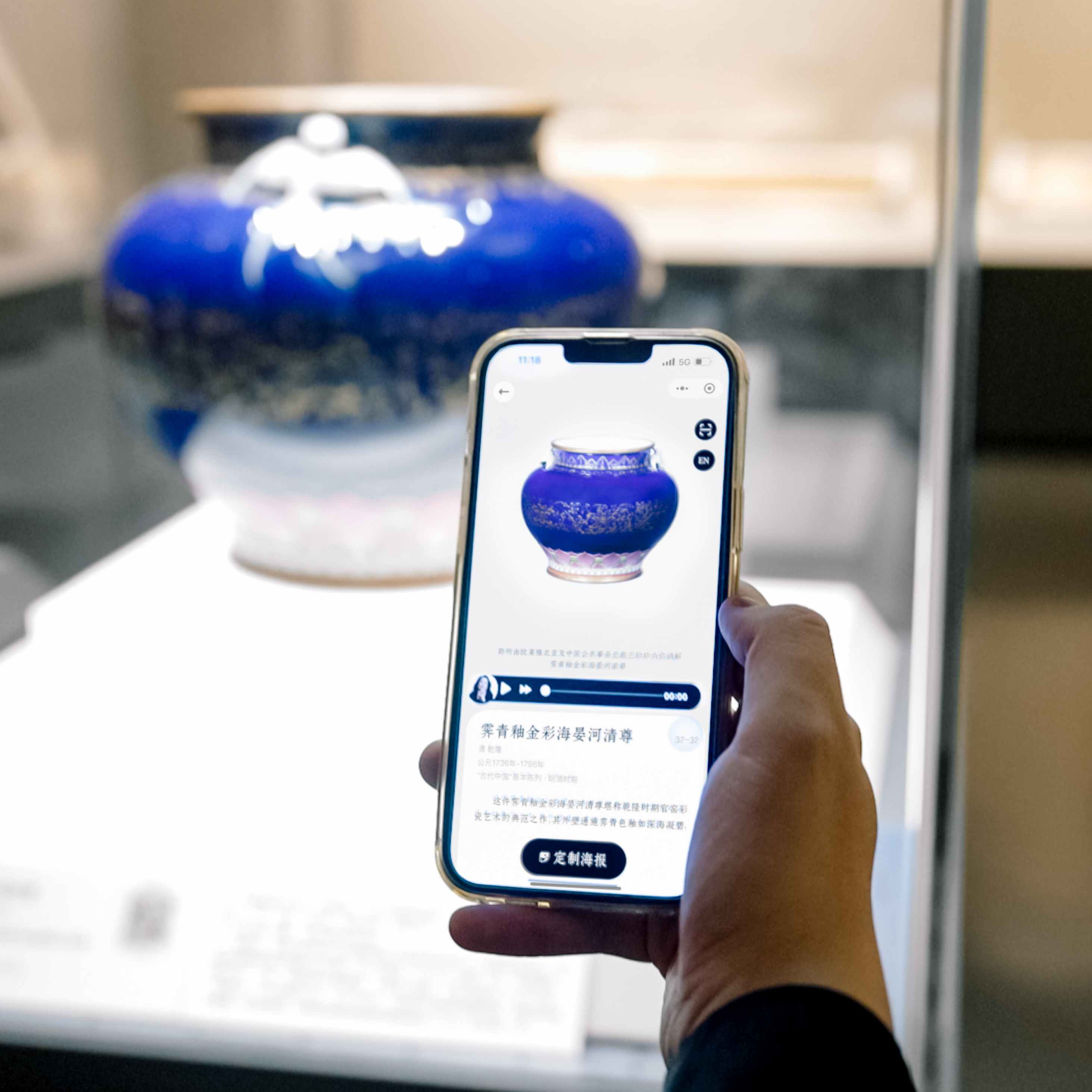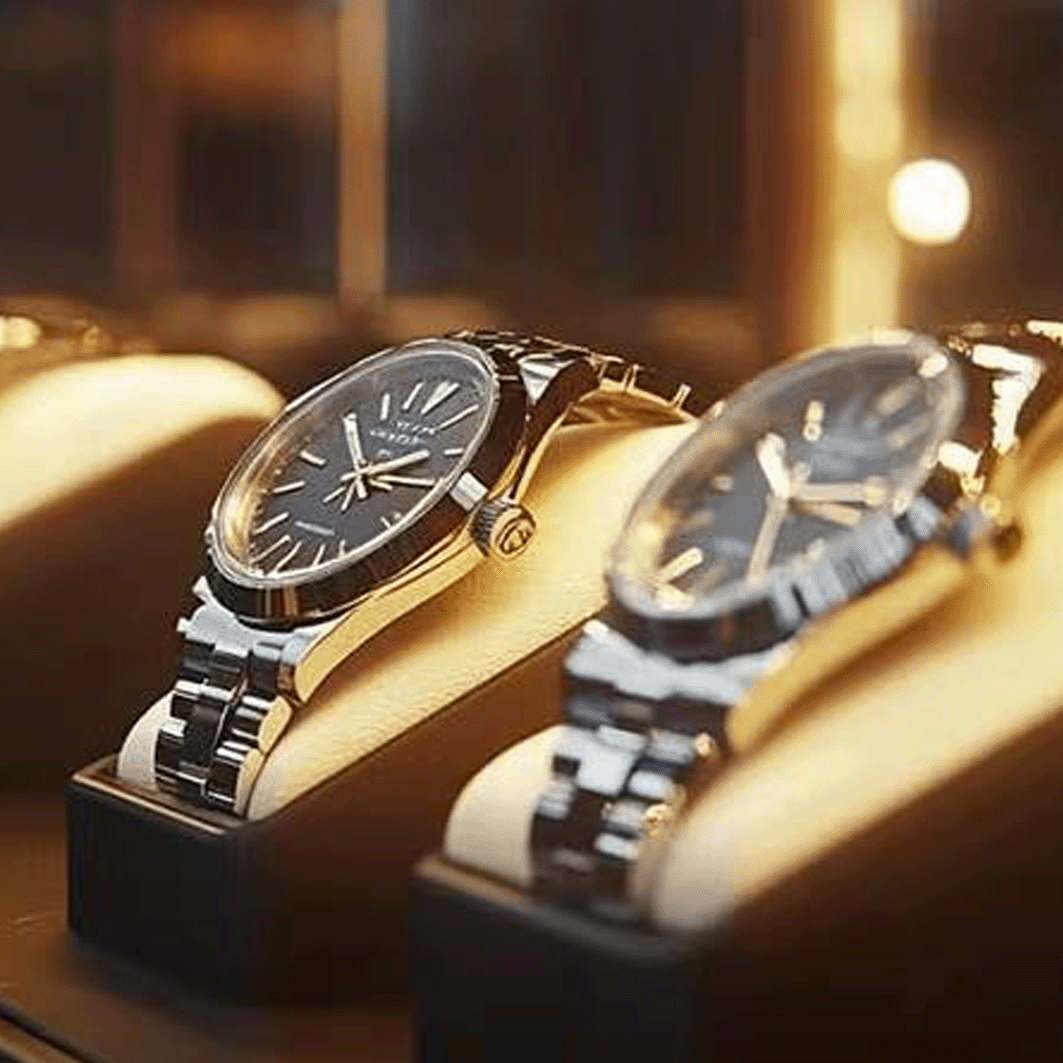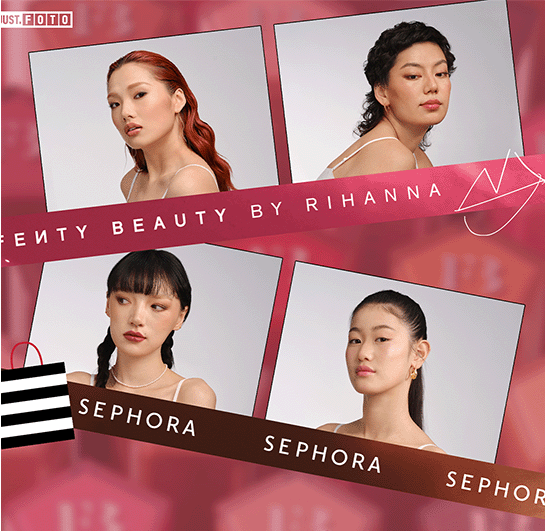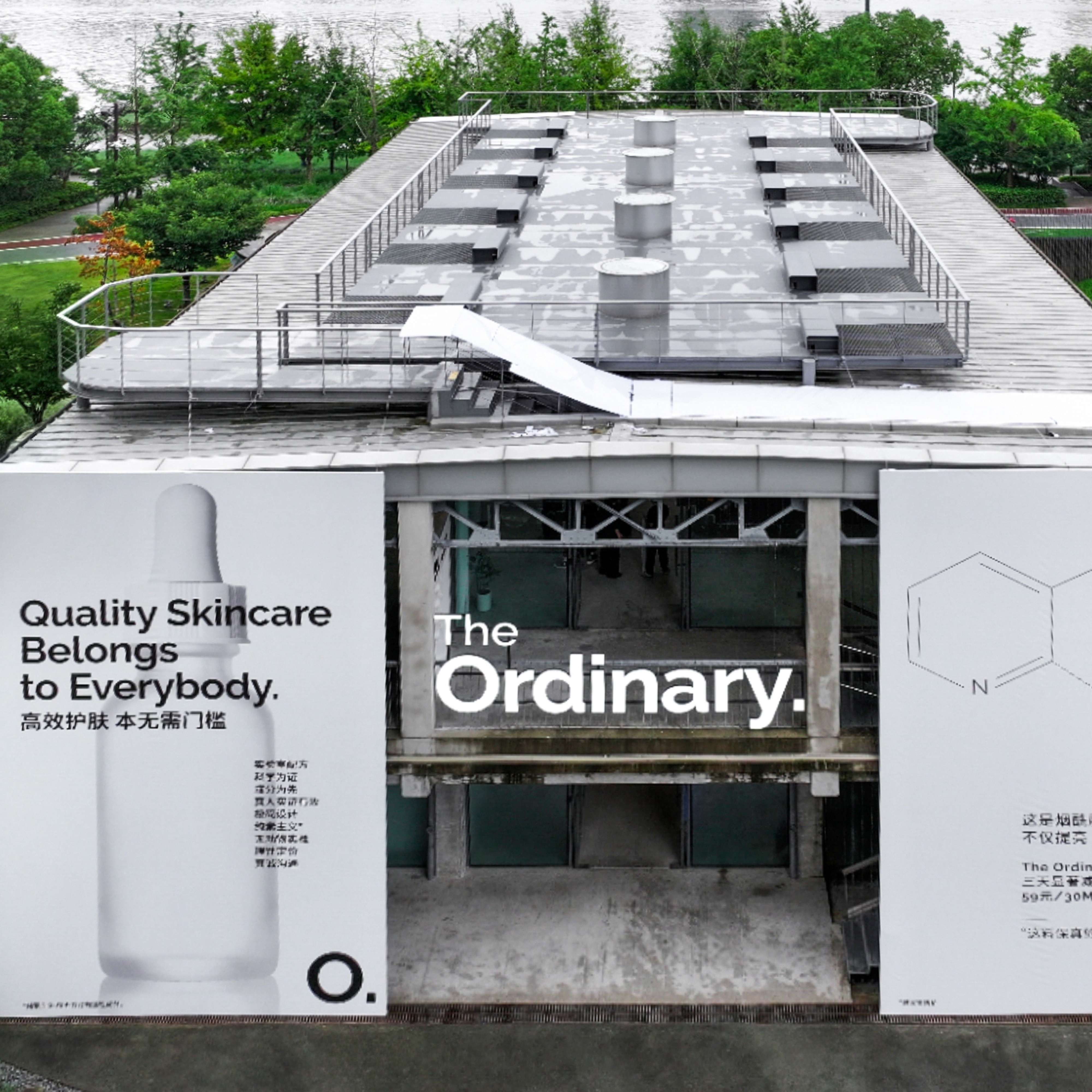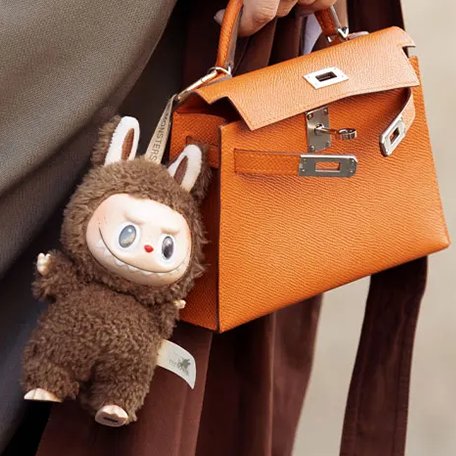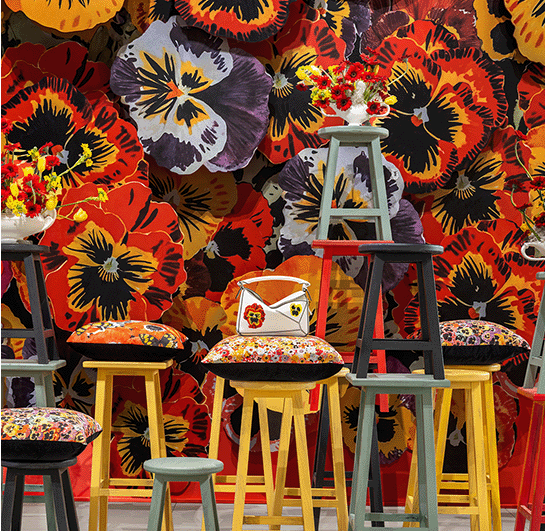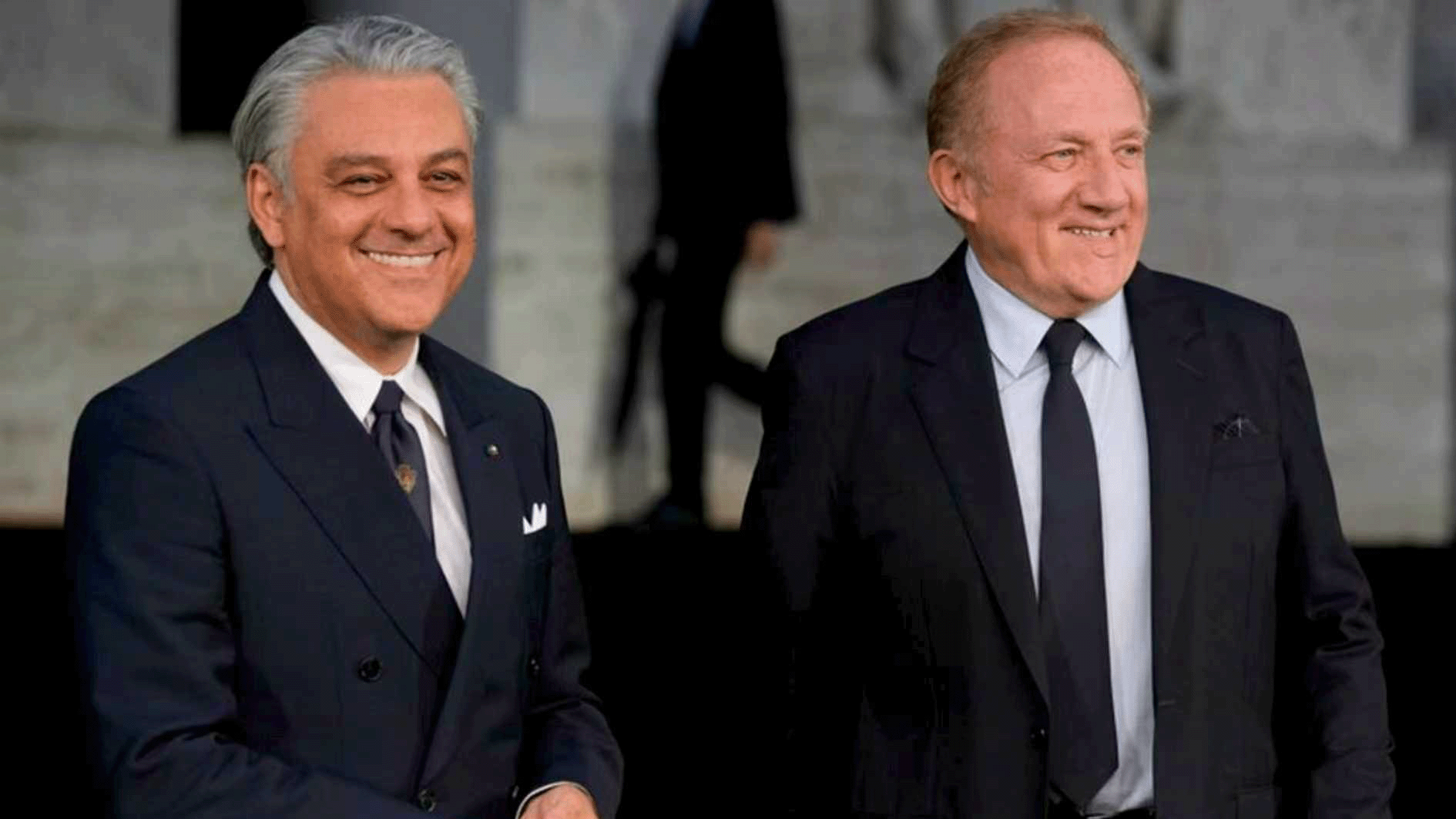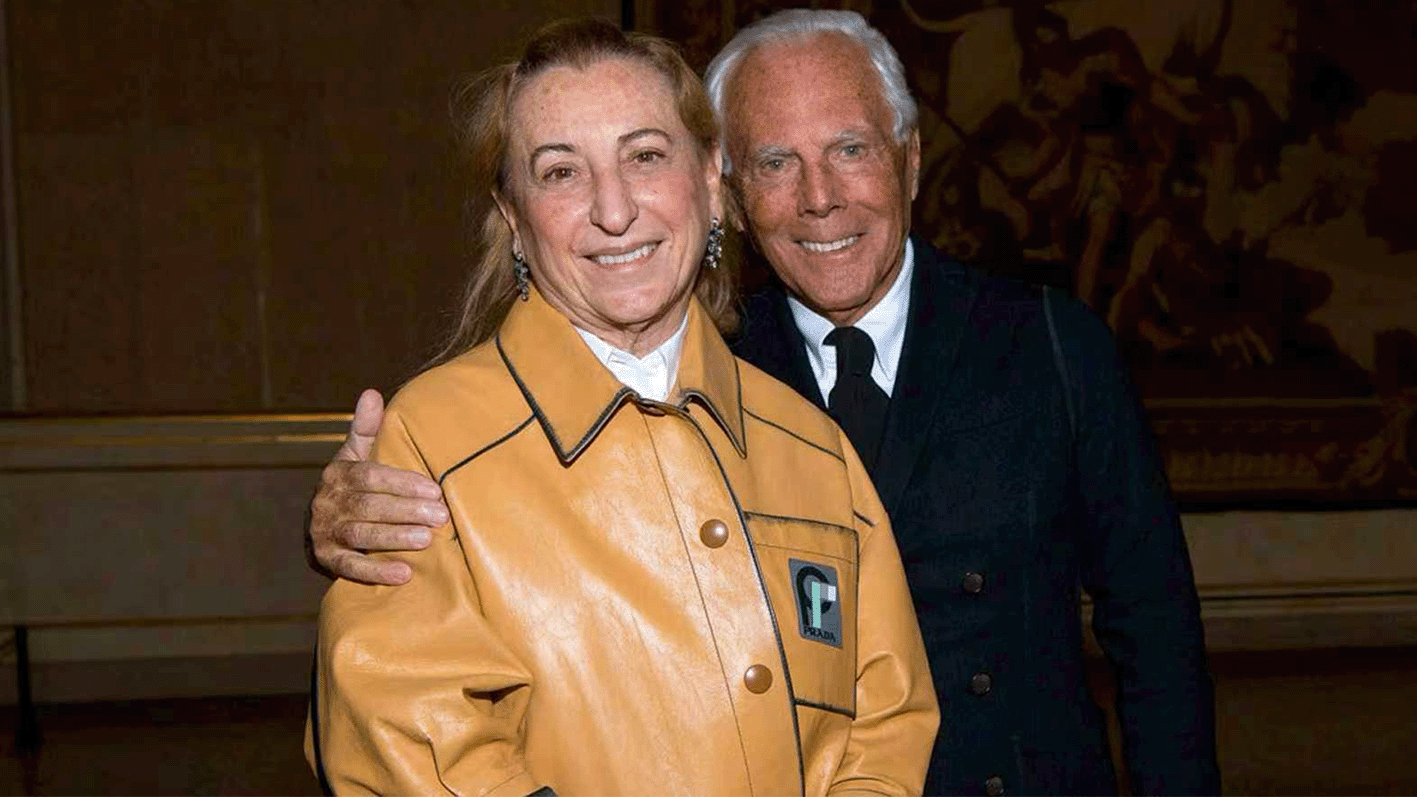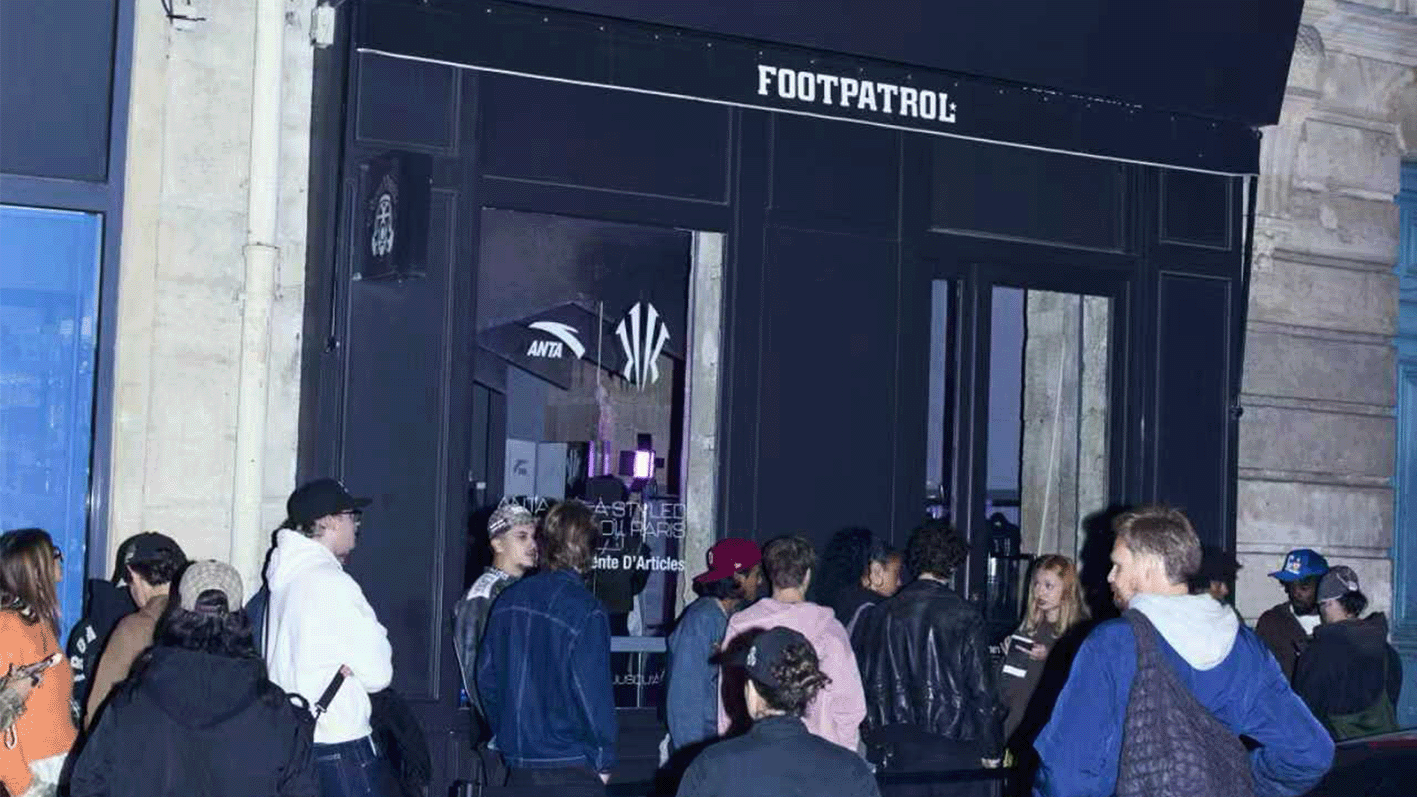- FEATURE
- |
- MERGERS & ACQUISITIONS
- |
- FINANCIAL
- |
- MARKETING
- |
- RETAIL
- |
- ESG-SUSTAINABILITY
- |
- LIFESTYLE
- |
-
MORE


Contrary to predictions of its decline, Double 11 is alive and kicking.
October 21, 8 pm, Tmall's Double 11 officially started, and by this morning, data from the "Pre-Sale" event had silenced skeptics who previously claimed “this might be the last Double 11.”
During this round of Double 11, known as the "Pre-Sale," Tmall’s beauty category saw 13 brands exceed 100 million RMB in sales within the first 10 minutes, and by the 30-minute mark, this figure had grown to 20 brands.
In sports and outdoor goods, six brands surpassed 100 million RMB in the first hour, with 32 hot items racking up over 10 million RMB each in sales.
Recently, Tmall also released its top-seller list from the first day of pre-sales on October 14. In sports and outdoor, Fila topped the list, with adidas and Nike following in second and third. Compared to the "2023 Tmall Double 11 Sports Brand Sales Rankings," where Nike, Fila, and Anta held the top three spots, it’s evident the sportswear market has shifted significantly.

In Tmall’s beauty pre-sales, PROYA continued to lead the category, with L'Oréal Paris and SkinCeuticals in second and third. Last year, PROYA and L'Oréal Paris were also the top two, while this year’s fifth-ranked Lancôme was third last year.
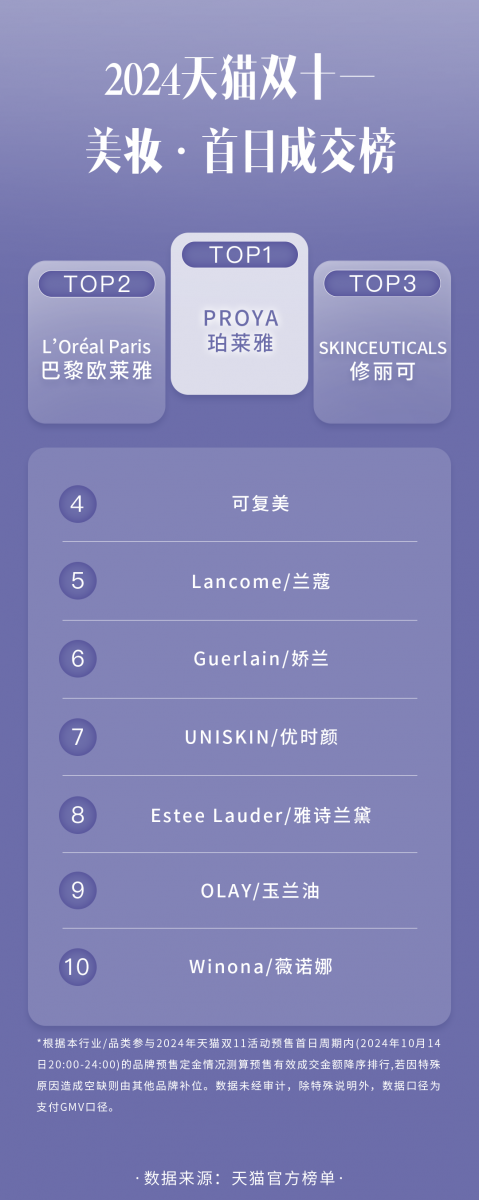
According to Linkshop, twelve brands in the sports and outdoor category, including Fila, Nike, adidas, The North Face, and others, broke 100 million RMB in sales. Notably, one of adidas down jacket crossed the 100 million RMB mark upon launch.
After the first hour, Salomon saw a sales increase of over 60% year-on-year, while On Running and Wilson grew by over 40%, and Hoka One One saw more than 20% growth.<





